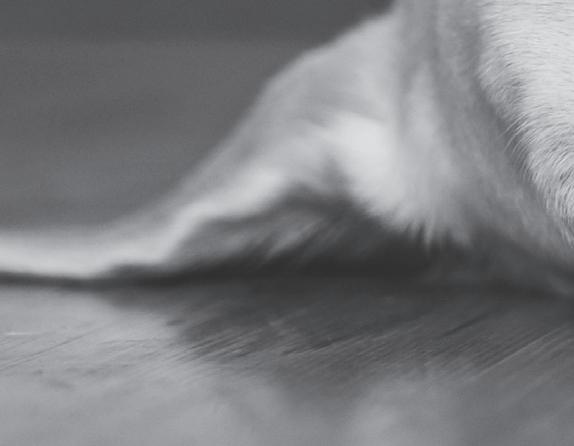
3 minute read
PET CARE


As our best friends age, they require more attention and help.

Pets are living longer than ever, but that comes with an increase in our responsibilities, too.
Credit for these lengthier lifespans goes to improved veterinary care, smarter dietary choices and better living conditions. Our pets richly deserve all of this special attention. But owners should prepare themselves for the budget pressures that inevitably follow as our furry friends age.


THE AGE RANGE
Small dogs and cats are generally considered to be geriatric when they reach the age of seven. Larger breeds of dogs usually have shorter life spans, so their geriatric age is moved up to six. Beginning around then, pets are at greater risk of cancer, kidney or urinary tract issues, heart and liver disease, diabetes, joint and bone problems, senility and general weakness.


SPECIAL CONCERNS
Senior pets also become more susceptible to quality-of-life issues that are commonly associated with their older owners, like obesity, arthritis and dental problems. Pets naturally slow down some as they age. So be on the lookout for sharp declines in mobility, as that may be a sign of issues like arthritis or deteriorating joints. Pay close attention to trouble they may have with using stairs, or an inability to get comfortable when trying to lay down. Becoming more sedentary often leads to weight problems, and that has also been linked to various negative health outcomes including heart disease and diabetes.


CHANGING NEEDS
Your pet’s needs will continue to change as they age. Weather conditions may play an increasing role in what they do outside, since the risk of injury increases. Be aware of extremes in heat or cold, since older pets will be more sensitive to them. Lowered metabolism may require tweaks to their diet. A certain amount of exercise is required to help with weight gain, and to combat heart disease. Just be careful not to overdo it.


BEHAVIORAL ISSUES
Older pets who become disoriented may be suffering from a kind of cognitive disfunction that’s similar to Alzhiemer’s. The American Veterinary Medical Association also warns pet owners to watch for a decrease in thirst or appetite, since those are warning signs for larger problems in the pancreas or stomach. If wounds are slow to heal, that could indicate immune-system issues and cancer.





















